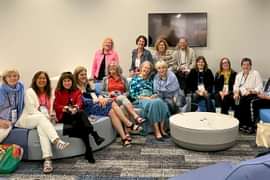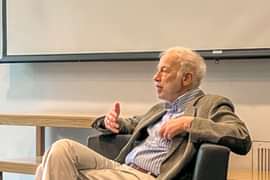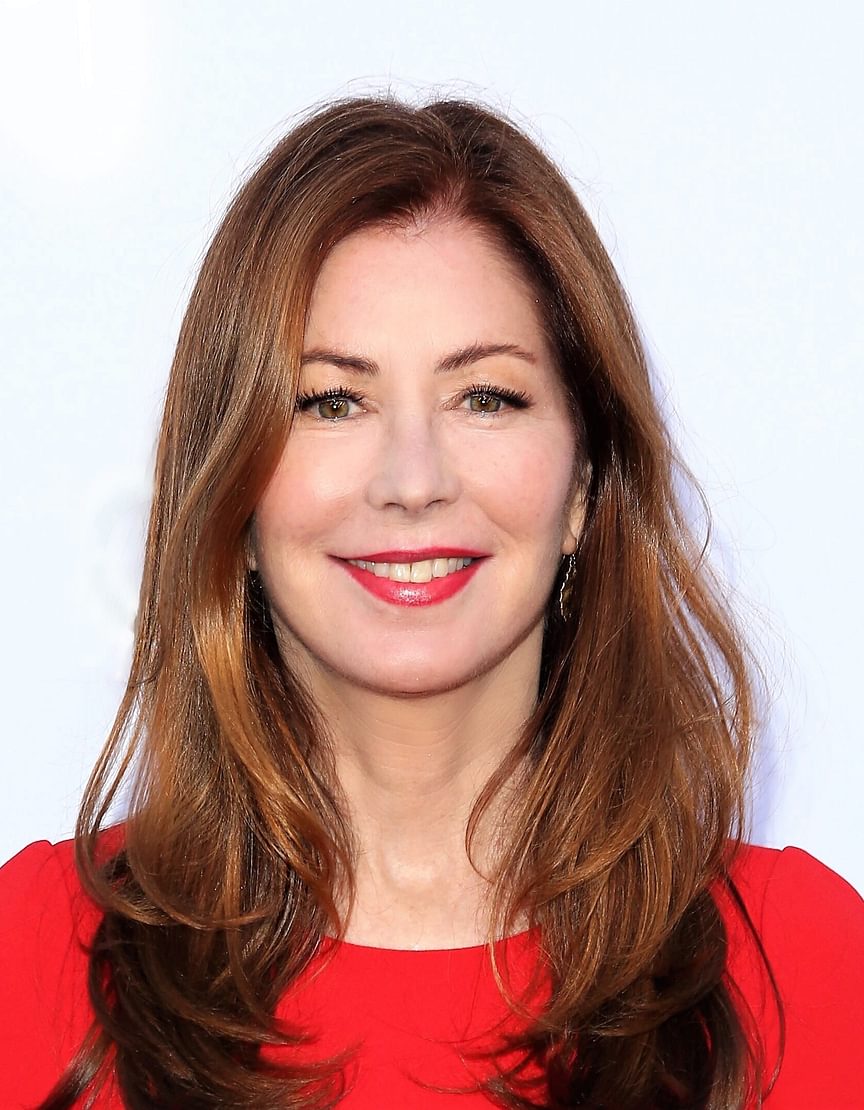
August 20, 2021
Unscripted
Dana Delany ’74 reflects on acting and taking risks in artby Jennifer Myers
For two-time Emmy award-winning actress Dana Delany ’74, these days work is about choosing projects she whole heartedly believes in—like supporting new female playwright Rachel Bonds whose play, Goodbye Nobody, featured Delany in a leading role.
“It’s about time we have female voices being heard,” Delany says. The critically acclaimed play performed at Princeton University explored themes of sexuality, mental illness, and generations of motherhood. Later this year, Delany can be seen playing Edith Roosevelt in The American Guest, an HBO Latin America mini-series about Roosevelt’s 1913 trip to Brazil. Coincidently, Edith was former Andover Head of School John Palfrey’s great-great grandmother.
How did you start making art?
I always liked acting. I was kind of shy as a kid. It was a way to get my parents’ attention. I would put on little shows and get other people to get involved in them. I liked to do art, paint and draw and I liked to dance. But I found that when you get older in our society, you had to specialize. Acting was what it was going to be. I still take great joy in acting. If that didn’t work out, the only other thing I wanted to do is to be a FBI agent. And then I found out they didn’t have women at that time. And then I was going to be a private detective. And I feel like acting is like being a private detective because you are always looking for clues and figuring out who people are and their motivations. That was one of the things about Body of Proof that I loved. It was like I was a private detective. And what was great about that show and acting in general are the things you learn; you are the eternal student. I got to go and observe autopsies and they let me participate in the autopsies and that is something I would never get to do if I wasn’t an actor and that was thrilling to me.
You are particularly good at crying on-screen. Is that something you have always been able to do or was it learned?
It was not easy. Growing up in New England, crying was not encouraged. I came from a very stoic family. When I went to New York to start acting after college I had a hard time showing vulnerability. Acting is all about being vulnerable, naked on stage emotionally. I had to really work at peeling back the layers and now some people would accuse me of crying too much. Once the floodgates open it is hard to close them. I always remember a quote from Katherine Hepburn, another New Englander who was very good at crying, she said “crying is not acting.” As long as it is genuine, that is all that matters.
What was the strongest influence you had when you were growing up?
I’ve always been a fan of classic movies. I would come home from school and turn on the 4:30 movie. My dad was a big movie buff. One of the things I did during the pandemic, I watched a lot of movies and now that there’s Criterion Channel and Turner Classic Movies you can really catch all the old movies and I started writing articles. I wrote an article about my favorite actress, Gloria Graham, which will be published in Noir City Magazine in August.
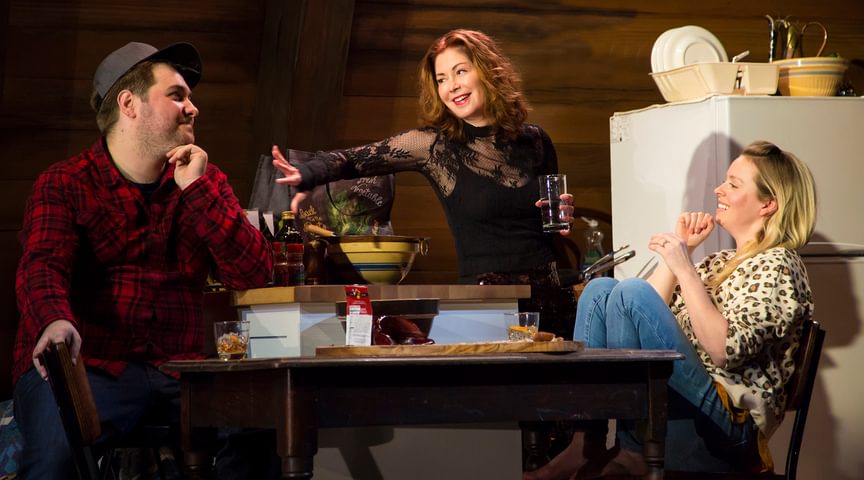
When was your ‘aha’ moment when you chose to pursue acting as a career path?
It was just a given. I was going to pursue it and hope that it would work out. Andover had a lot to do with that because I acted always in all the school plays starting in elementary school and when I got to Andover the drama teacher at the time, Frank Bellizia, really encouraged me. One thing I have a lot of fear about is singing in public and he pushed me to doing that and ended up playing the lead in “South Pacific,” which is really the last time I sang out loud on stage. They would encourage you to do things that scared you and if you really wanted to do it, they gave you a place to do it.
What’s the best thing about your job?
It is curiosity. Curiosity keeps you young and interested in life. You get to play new roles and meet so many people. The finest moments to me are very rare but when they happen, they are amazing. When you are in a scene with someone, and you feel like it’s so honest and so true and you learn something about yourself—it is just a constant revealing of humanity and I find that fascinating.
What is your most important tool? Is there something you can’t live without in your studio/creative space?
A good breakfast and a good bra.
How has your practice changed over time?
It has definitely changed. Architects get to do their job and they are more respected the older they get. I feel like actors, especially women, just when you feel like you know what you’re doing the roles get slimmer. When I was younger, I wanted to show everything, I wanted to feel everything, I wanted to express everything. And then the older you get you learn the economy of emotion and the economy of space and the economy of gesture. I get more interested in doing less and less and less.
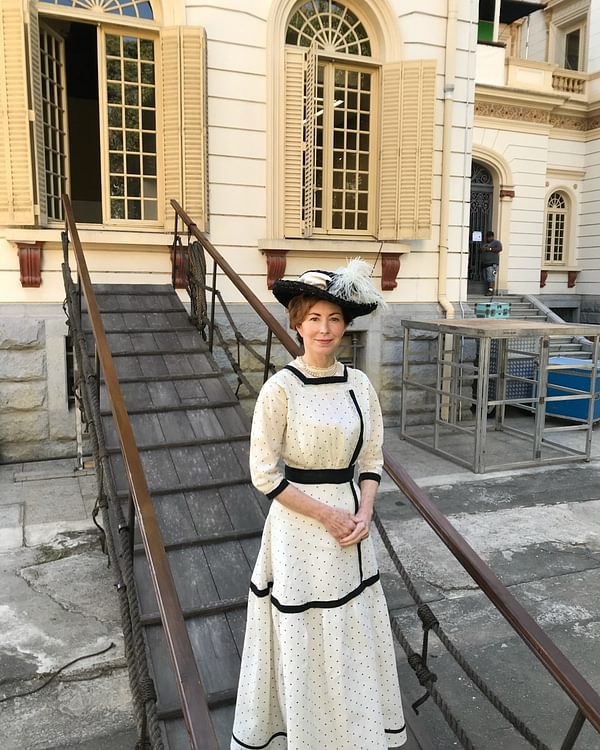 Delany playing Edith Roosevelt in The American Guest
Delany playing Edith Roosevelt in The American Guest
What did you find interesting about Goodnight Nobody?
It was a new play, which was fun, and I wanted to work with younger people. I think that’s really important. I was the oldest one in the cast, which was a first for me. And it was a young female playwright, a young female director, young actors. They really challenged me. I like doing new plays with young female playwrights. That’s what I’m trying to do more of. That’s my next things. It’s about time that we have female voices being heard. The play was being rewritten right up until opening night, especially my scenes. That was a challenge because as you get older it is harder to memorize things. We were learning new scenes at 4 o’clock before opening night at 8. That was kind of thrilling. It was also very interesting to be at Princeton because I had never been to the Princeton campus before. I lived right on campus and walked to the theater, so it was like being a student again.
What are you listening to/reading/binge watching at the moment; what do you recommend?
I like the classic movies. I started in on French movies. I highly recommend all of the Alain Delon movies, especially anything directed by Melville. I fell in love with him and his acting and it’s been my total romantic escapism. Alain Delon has been my pandemic boyfriend.
Do you have a dream project?
I still have one more television series I’d like to get off the ground. It’s hard because it is about the art world and not everyone understands the art world and they are worried that it is elitist and that only certain people understand art. If I can do it, it will be great because it involves politics, history, art, and crime.
Do you feel The Addison was influential in your arts education?
Absolutely. I was only there for one year as a senior and I was overwhelmed, so I didn’t get to The Addison as much as I should have. But now when I go back—and I go to every reunion—I always make a trip to The Addison because it is an incredible collection.
Who is your art hero and why?
Frank Gehry the architect. I feel like he embodies the rebel spirit. When I see his buildings, I feel like I’m having a religious experience. I’ve gotten to know him; he’s not young anymore, but he is still creating, he is still a rebel, and he is still a curmudgeon. I hope that when I get older, I am a complete rebel curmudgeon. That is my aim in life.
What did you learn at Andover/Abbot that still benefits you today?
It’s the motto “Non Sibi,” (not for oneself). It’s such a beautiful motto and applies to everything in life. It taught me early on that you can’t just do a project because it is fun. You have to look deeper and see what the ramifications are of the project, what the deeper meaning is behind it. And I always do question how something I do will benefit the world in some way and that makes you look at the world differently, not just in my social activism but also in my work.
What is your advice for an Andover student who is just beginning to explore the arts?
Find a community you like working with and create your own stuff. Don’t rely on people outside you to do it. If you can find a group of like-minded people just start making your own films, putting on your own plays. Then you will find your voice and what interests you and you’ll be self-motivated and empowered.
What about your work are you most proud of?
That I’m still doing it. It’s hard to have an acting career. Longevity and consistency.
What is in store next for you—anything you’re currently working on that you’d like to share?
I learned very young to save my money because I knew when I got older, I wanted to have the freedom to take risks and do things that are personal and strange. I can now try things out like the thing I am working on now. It is a play I am developing with a female playwright and director I have worked with before, based on an incident that happened in my life. We go back to a workshop in New York in August, and we will see what happens with it from there.




